In the labyrinthine landscape of global politics, few conflicts have captured the world’s attention and concern quite like the one unfolding in Syria. This war-torn nation, once a beacon of ancient civilization, has been engulfed in a brutal conflict for over a decade, leaving in its wake a trail of destruction, displacement, and despair. At the heart of this complex geopolitical puzzle lies Saudi Arabia, a regional powerhouse that has been vocal in its stance on the Syrian conflict.
In a recent statement, Saudi Arabia’s Foreign Minister, Prince Faisal bin Farhan, appealed to the international community to avoid further ‘chaos and division’ in Syria. This plea, published in the esteemed financial newspaper Barron’s, serves as a stark reminder of the precarious state of affairs in the war-ravaged country. But what does this appeal mean for the future of Syria, and more importantly, what can we, as individuals, learn from this ongoing crisis to better prepare ourselves for similar situations?
This article aims to delve into the intricacies of Saudi Arabia’s stance on the Syrian conflict, providing a comprehensive understanding of the regional dynamics at play. We will explore the historical context, the key players, and the complex web of alliances and rivalries that have shaped the conflict. Moreover, we will examine the potential implications of Saudi Arabia’s appeal, both for the region and the global community.
But this article is not just about geopolitics; it is also a call to action. In the face of such monumental crises, it is easy to feel helpless, to believe that our individual actions hold little weight. However, this could not be further from the truth. By understanding the lessons from the Syrian conflict, we can better prepare ourselves, our families, and our communities for similar situations. Whether it’s understanding the importance of emergency preparedness, the value of community resilience, or the power of advocacy, this article promises to equip you with the knowledge and tools necessary to navigate uncertain times.
So, let us embark on this journey together. Let us explore the complexities of the Syrian conflict, the Saudi appeal, and the lessons we can draw from it. Let us ask the tough questions, challenge the status quo, and most importantly, let us learn and grow. After all, knowledge is not just power; it is our best defense against the chaos and division that threaten to engulf us.
Saudi Arabia’s Call for Unity and Stability in Post-Assad Syria
In the wake of the Syrian conflict, Saudi Arabia has consistently advocated for unity and stability in a post-Assad Syria. The kingdom’s stance is rooted in its strategic interests and the desire to maintain regional security. Saudi Arabia has long been a vocal critic of the Assad regime, viewing it as a destabilizing force in the region and a supporter of terrorist groups. The kingdom has been a key backer of the Syrian opposition, providing financial and military support to various rebel factions. However, with the Assad regime’s grip on power seemingly secure, Saudi Arabia has shifted its focus towards rebuilding efforts and promoting unity among Syria’s diverse population. The kingdom has called for a political transition that includes all segments of Syrian society, including the opposition and government forces. It has also emphasized the importance of respecting Syria’s sovereignty and territorial integrity, a nod to the concerns of other regional powers. Saudi Arabia’s call for unity and stability is a pragmatic response to the reality on the ground, aimed at preventing further chaos and ensuring that Syria does not become a breeding ground for extremism. However, the path to unity and stability will be fraught with challenges, not least of which is the deep-seated mistrust and divisions among Syria’s various factions. The kingdom’s role in facilitating dialogue and reconciliation will be crucial in the months and years ahead.
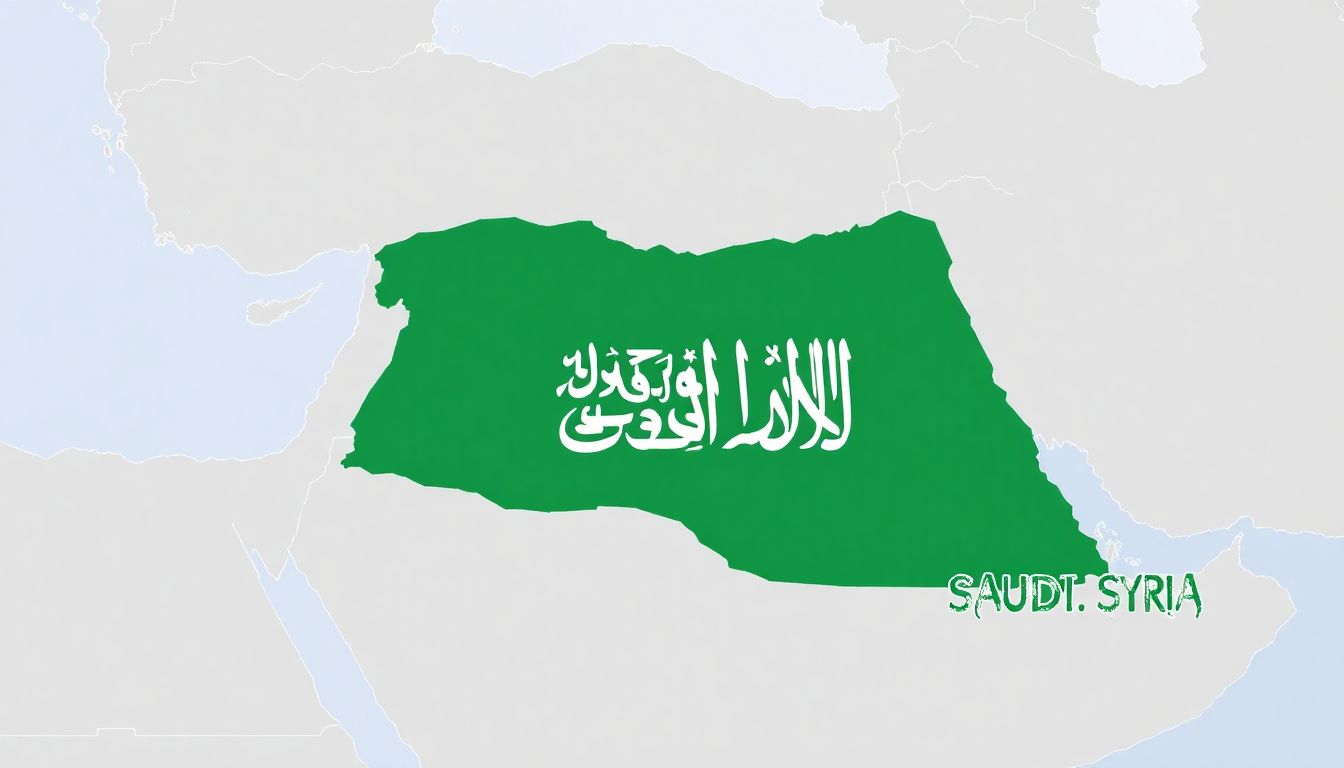
Understanding the Saudi Appeal
Saudi Arabia’s recent statement, a stern warning to Syria, has sent ripples of intrigue and concern through the Middle East and beyond. To grasp the significance of this development, we must delve into the complex historical relationship between the two nations and the context in which the statement was made.
The Kingdom of Saudi Arabia, a powerhouse of the Arab world, has long held significant influence due to its vast oil reserves and religious clout. Its statement, a rare public rebuke of a fellow Arab nation, underscores the gravity of the situation. The statement, condemning Syria’s support for the Houthi rebels in Yemen, highlights the regional power dynamics at play.
To understand the implications, let’s first explore the historical relationship between Saudi Arabia and Syria. Their ties can be traced back to the early 20th century, with both nations playing pivotal roles in the Arab Revolt against the Ottoman Empire. However, their paths diverged post-independence, with Syria aligning with the Soviet Union during the Cold War, while Saudi Arabia leaned towards the West.
Over the years, their relationship has been marked by periods of cooperation and tension. In the 1970s and 1980s, they worked together to counter Iraqi influence in the region. However, the Syrian regime’s support for Iraq during the Gulf War in 1990-1991 marked a significant strain in their ties. The Arab Spring further exacerbated tensions, with Saudi Arabia supporting the opposition in Syria, while the Assad regime clung to power.
Today, the Saudi statement reflects a hardening of Riyadh’s stance towards Damascus. It underscores the Kingdom’s commitment to its regional allies, particularly the UAE and Egypt, and its opposition to Iranian influence in the region. The statement also signals a potential shift in Saudi Arabia’s foreign policy, with the Kingdom increasingly willing to use diplomatic and economic leverage to achieve its goals.
For those interested in prepping for such geopolitical shifts, understanding the dynamics at play is crucial. Here are some steps to consider:
- Stay informed: Keep up-to-date with regional news and developments to anticipate potential changes in the global political landscape.
- Diversify investments: Spread your investments across different sectors and regions to mitigate risks associated with political instability.
- Build a support network: Establish connections with like-minded individuals and communities who share your interests and can provide mutual support in times of uncertainty.
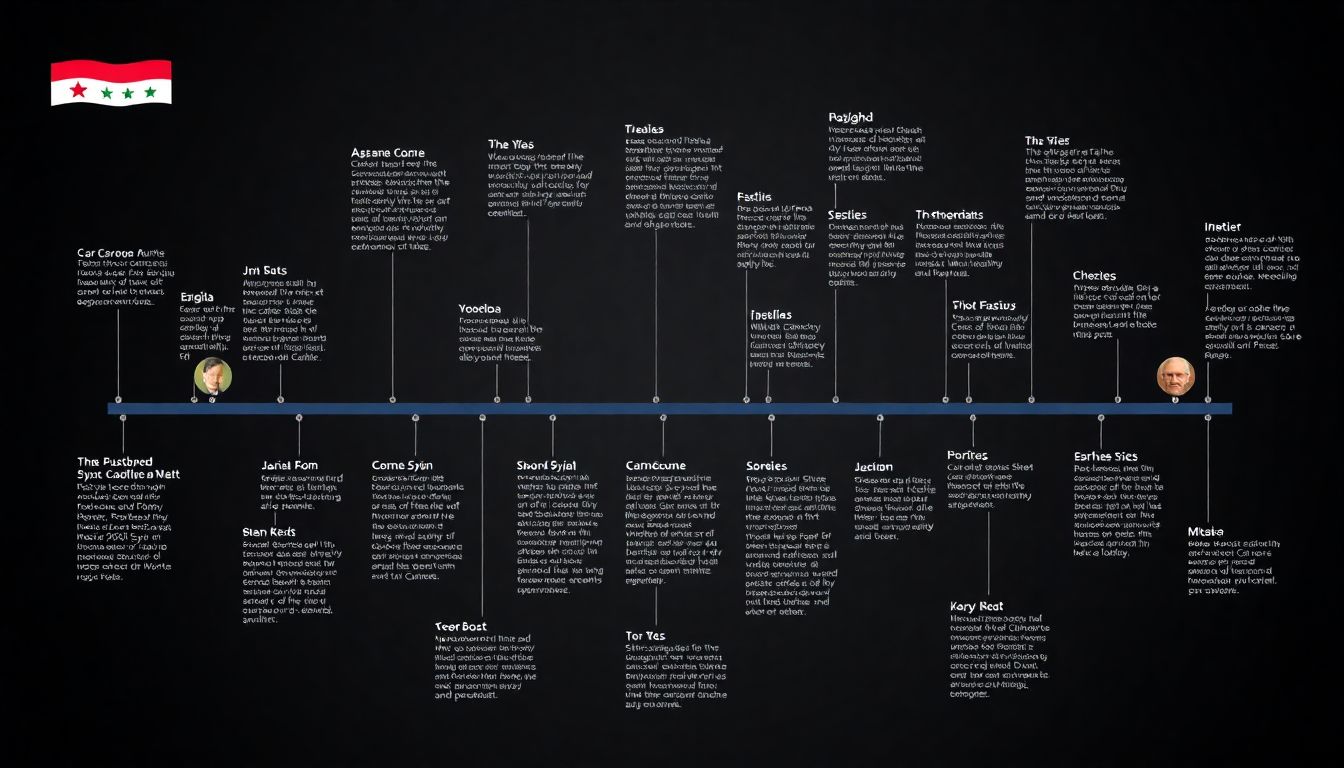
The Syrian Conflict: A Brief Overview
The Syrian conflict, now in its tenth year, is a complex web of political, sectarian, and geostrategic tensions that have torn the country apart. It all began in 2011, when the Arab Spring protests reached Syria, with citizens calling for President Bashar al-Assad’s resignation. The government’s brutal crackdown on protesters sparked an armed rebellion, marking the start of the Syrian Civil War.
The conflict has seen a multitude of players, both local and international. The Assad regime, backed by Russia, Iran, and Hezbollah, has maintained control over the country’s major cities and resources. On the opposing side, a vast array of rebel groups, including Islamist factions like Jabhat al-Nusra and Ahrar al-Sham, have fought against the regime. The Islamic State (ISIS) also emerged as a significant player, seizing territory in eastern Syria.
The role of Islamist rebels has been contentious. While some sought to overthrow Assad and establish an Islamic state, others focused on fighting the regime and ISIS. Their presence has influenced the conflict’s dynamics and international responses.
Today, the conflict is far from over. Despite Assad’s military victories, significant portions of the country remain outside his control. The situation is further complicated by the presence of Kurdish forces, Turkish intervention, and the ongoing fight against ISIS remnants. The potential consequences of Assad’s overthrow are vast, ranging from political instability and further refugee crises to potential power vacuums that could be exploited by extremist groups.
Preppers can learn from this complex situation. Here are some steps to consider:
- Stay informed about global events and their potential impacts on your region.
- Diversify your prepping supplies to include items that could be useful in various conflict scenarios.
- Consider the potential consequences of political changes and how they might affect your preparedness plans.
- Build a network of like-minded individuals who can support each other in times of crisis.
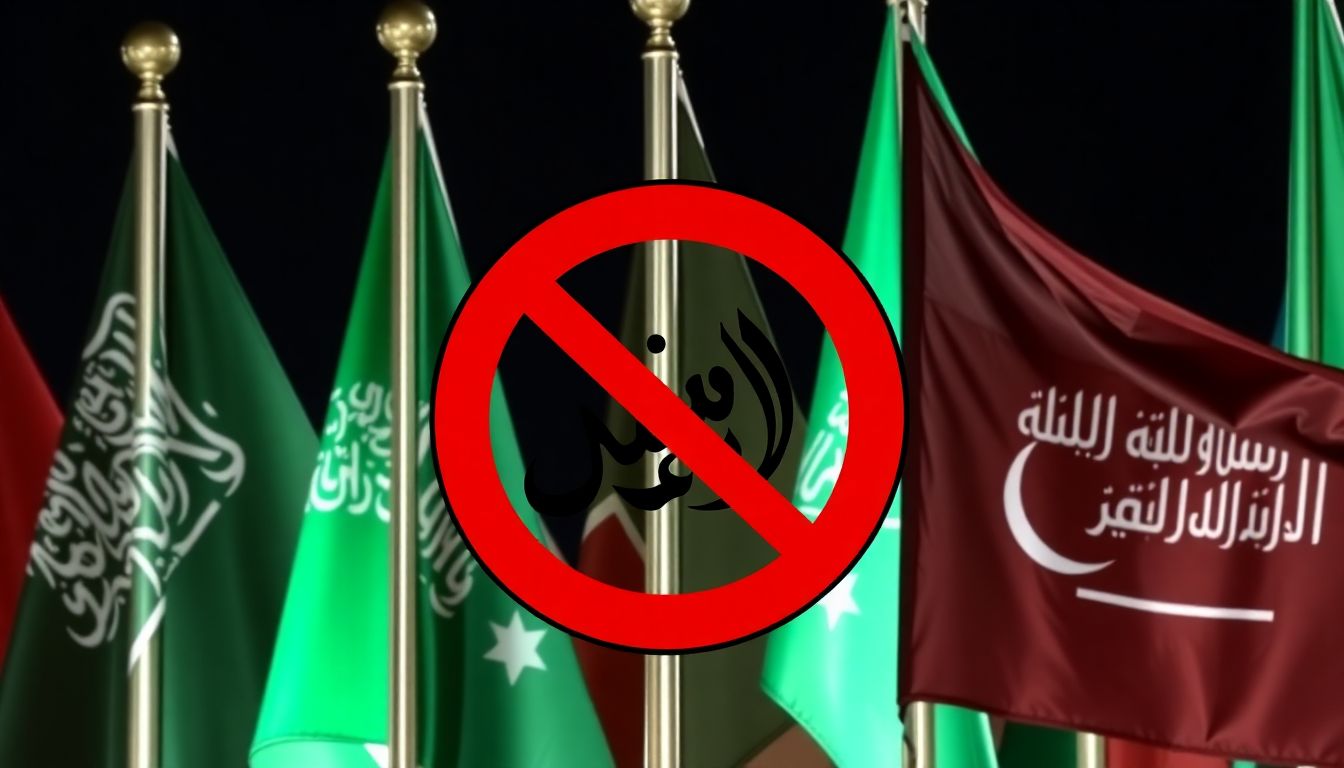
Saudi Arabia’s Stance on Islamist Rebels
Saudi Arabia, a major player in the Middle East, has maintained a complex stance on the Islamist rebels involved in the Syrian conflict. The kingdom, a Sunni-majority nation, initially supported some rebel groups, viewing them as a bulwark against the Assad regime’s oppression and the influence of Iran and its Shiite proxies. However, as the conflict evolved and extremist groups like ISIS and Al-Qaeda affiliates gained prominence, Saudi Arabia’s perspective shifted significantly.
The kingdom’s primary concern is the rise of extremist groups that could pose a threat to regional stability and global security. Saudi Arabia has witnessed firsthand the destructive power of these groups, having faced numerous terrorist attacks on its own soil. The spread of extremist ideologies and the potential export of terrorism are grave threats that Saudi Arabia is eager to mitigate.
To address these concerns, Saudi Arabia has taken several steps. Firstly, it has been working closely with international partners to combat the financing of terrorist groups. The kingdom has implemented stringent measures to prevent its territory from being used to funnel funds to extremist organizations. Secondly, Saudi Arabia has been actively involved in diplomatic efforts to resolve the Syrian conflict, advocating for a political solution that would deny extremist groups a foothold. Lastly, the kingdom has been engaged in military operations, such as the coalition against ISIS in Syria and Iraq, to eliminate the physical presence of these groups and their influence.
In conclusion, Saudi Arabia’s stance on Islamist rebels in Syria is driven by a desire to protect its national security and regional stability. The kingdom’s approach has evolved over time, reflecting the changing dynamics of the conflict and the growing threat posed by extremist groups.
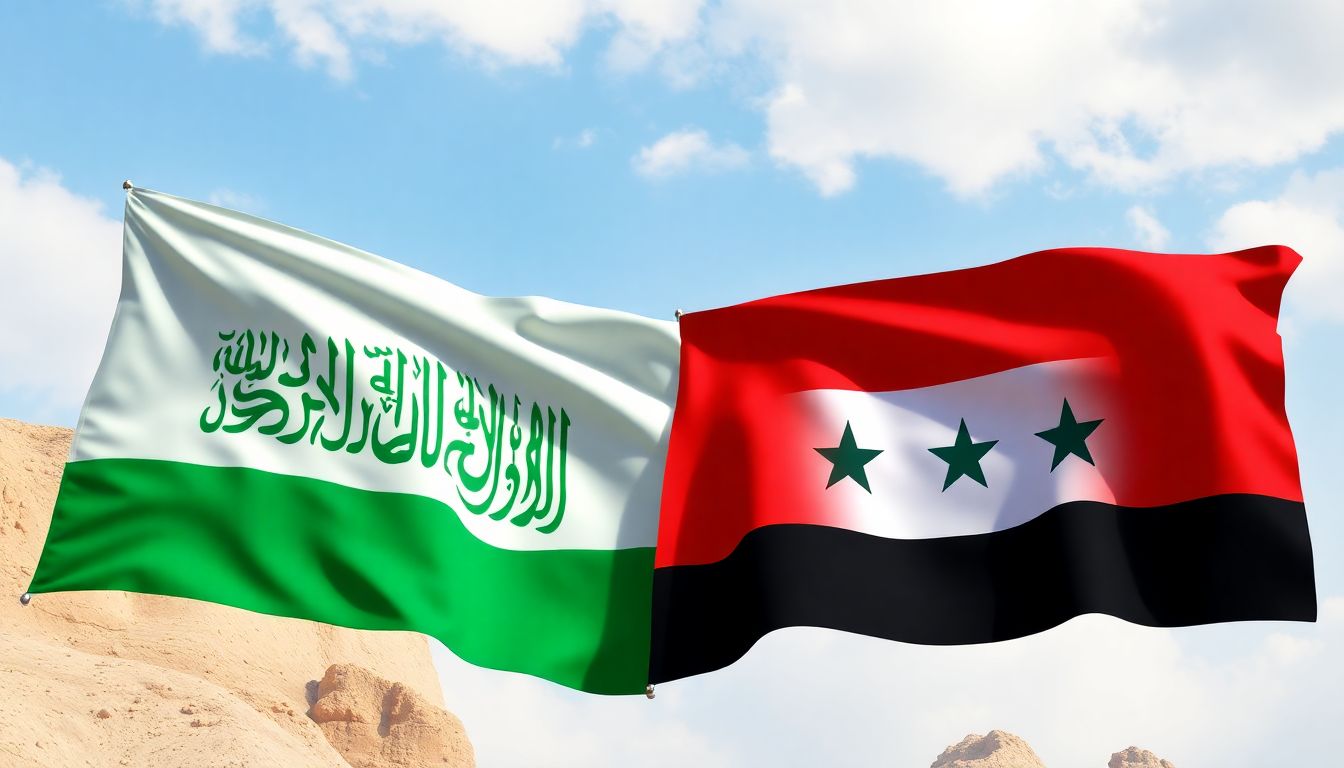
Preparing for a Post-Assad Syria: Saudi Arabia’s Perspective
Preparing for a Post-Assad Syria: Saudi Arabia’s Perspective
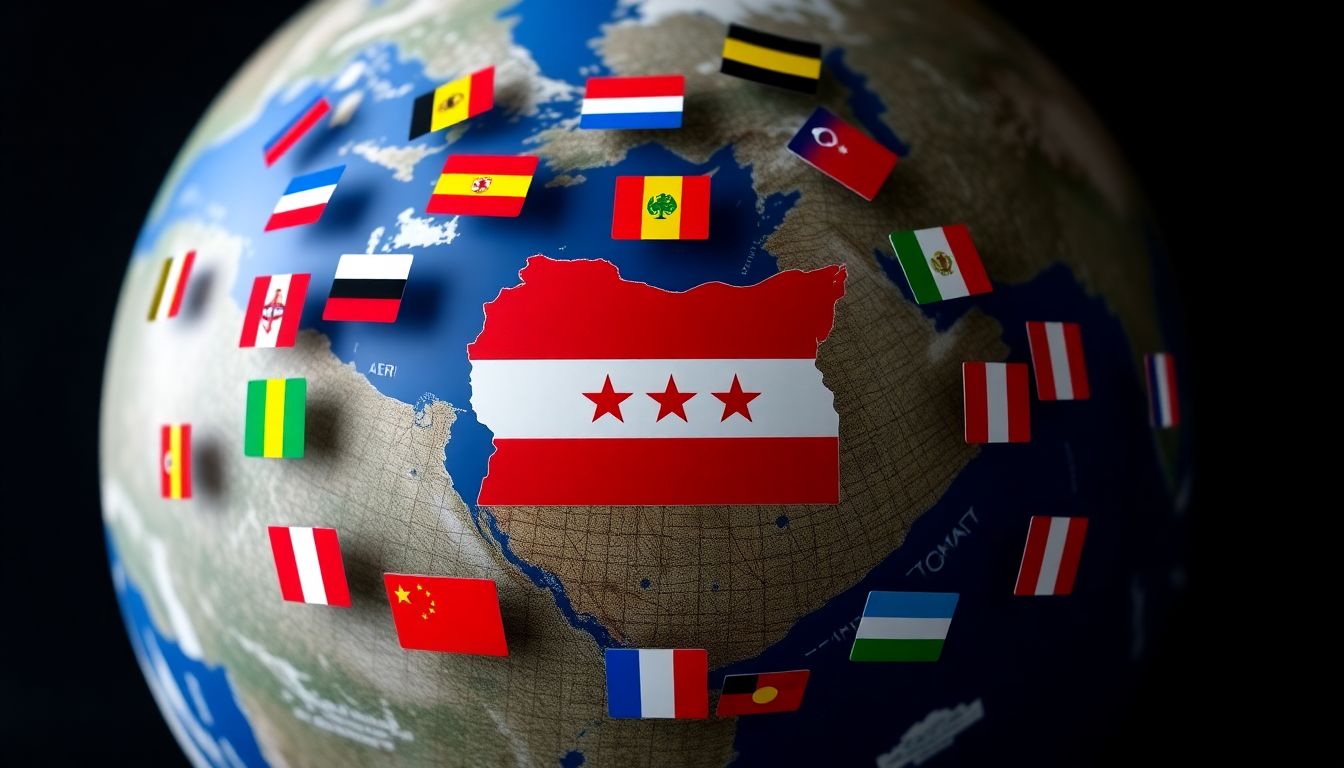
The Role of the International Community
The Syrian crisis, now in its tenth year, has been a stark reminder of the international community’s role in preventing state collapse and human suffering. The United Nations (UN), European Union (EU), and other global actors have been at the forefront of efforts to mitigate the chaos and division that have plagued Syria since the onset of the conflict in 2011.
The UN, through its various agencies, has been instrumental in providing humanitarian aid to the millions of Syrians affected by the conflict. The World Food Programme (WFP), for instance, has provided food assistance to over 4 million people inside Syria each month. The UN Refugee Agency (UNHCR) has also played a crucial role in supporting the over 5.6 million Syrian refugees who have fled the country.
The EU, on the other hand, has been a significant financial contributor to these efforts. It has pledged over €17 billion in humanitarian and resilience-building support to the Syrian people since 2011. The EU has also been actively involved in diplomatic efforts to find a political solution to the conflict, including through its participation in the UN-led Geneva process.
However, the international community’s efforts have not been without challenges. The political divisions within the UN Security Council, particularly between Russia and the West, have often hindered the body’s ability to take decisive action. The complex nature of the conflict, involving numerous armed groups and external actors, has also made it difficult to find a unified approach to the crisis. Moreover, the scale of the humanitarian need has often outstripped the resources available, leading to gaps in assistance and protection for vulnerable populations.
Despite these challenges, the international community continues to play a vital role in Syria. It is crucial that global actors remain committed to finding a political solution to the conflict, providing life-saving humanitarian assistance, and supporting the long-term resilience of the Syrian people. This will involve not only addressing the immediate needs of those affected by the crisis but also supporting efforts to rebuild Syria’s infrastructure, economy, and institutions. It is only through such a comprehensive approach that the international community can hope to prevent Syria from falling further into chaos and division.

Prepping for Uncertain Times: Lessons from Syria
Discuss the importance of prepping and being prepared for uncertain times, using the Syrian conflict as a case study. Provide practical tips and strategies for individuals and communities to prepare for potential chaos and division.

The Future of Syria: Hope and Caution
Syria, a nation once known for its ancient history and cultural richness, has been through a devastating decade of conflict. As the world watches, the country begins to emerge from the shadows of war, offering a glimmer of hope for a better tomorrow. The recent political developments, including the constitutional committee and the ceasefire agreements, have sparked optimism among Syrians and the international community alike. The reconstruction efforts, though challenging, present an opportunity to rebuild not just infrastructure, but also hope and unity.
The road to recovery, however, is fraught with challenges that demand our caution. The country’s infrastructure lies in ruins, with millions displaced and countless lives lost. The economic sanctions, while lifted in some parts, continue to hinder recovery. Moreover, the political landscape remains complex, with various factions vying for power. The threat of extremist groups still lingers, and the COVID-19 pandemic has added another layer of complexity to the situation.
In the face of such uncertainty, it is crucial to maintain a balance between hope and caution. Hope fuels our determination to support Syria’s recovery, while caution ensures that we approach this task with a clear understanding of the challenges ahead. For those who wish to contribute to Syria’s future, here are some steps to consider:
- Educate Yourself: Understand the complexities of the Syrian conflict and the current political landscape. This knowledge will help you make informed decisions about how to support the country’s recovery.
- Support Legitimate Organizations: There are numerous NGOs and charities working on the ground in Syria. Research and support those that are transparent and have a proven track record.
- Advocate: Use your voice to raise awareness about Syria’s situation. Advocate for policies that support peace, reconstruction, and human rights.
- Prepare for the Long Haul: Recovery will take time. Be patient and persistent in your support.
FAQ
What is the current conflict in Syria and why is Saudi Arabia appealing for avoidance of ‘chaos and division’?
How does the conflict in Syria impact the broader Middle East region?
What role has Saudi Arabia played in the Syria conflict?
What does the ‘Synd’ in the headline ‘SYND’ refer to?
What are the potential consequences if the appeal for avoiding ‘chaos and division’ in Syria is not heeded?
What steps can be taken to support the people of Syria and help them rebuild their lives?
- Providing humanitarian aid to meet immediate needs such as food, shelter, and medical care.
- Supporting reconstruction efforts, including the rebuilding of infrastructure like schools, hospitals, and homes.
- Promoting political dialogue and a peaceful transition to help stabilize the country and prevent further conflict.
- Providing educational opportunities to help Syrian children and youth rebuild their lives and contribute to the country’s future.
- Supporting initiatives that promote reconciliation and healing among different communities in Syria.
How can individuals contribute to the effort to support Syria and its people?
- Donating to reputable humanitarian organizations that are working on the ground in Syria to provide aid and support to those in need.
- Raising awareness about the situation in Syria and advocating for greater international support and action.
- Supporting initiatives that promote peace, reconciliation, and healing in Syria and the broader region.
- Hosting or participating in events to raise funds and awareness for Syria.
- Providing skills and expertise to support reconstruction and development efforts in Syria.
What can be done to prevent similar conflicts from happening in the future?
- Promoting good governance and human rights to address the root causes of conflict.
- Strengthening international institutions and norms to prevent and resolve conflicts peacefully.
- Supporting diplomacy and mediation efforts to prevent conflicts from escalating.
- Addressing the impact of climate change and other environmental factors that can exacerbate conflicts.
- Promoting education and dialogue to foster understanding and tolerance among different communities.









